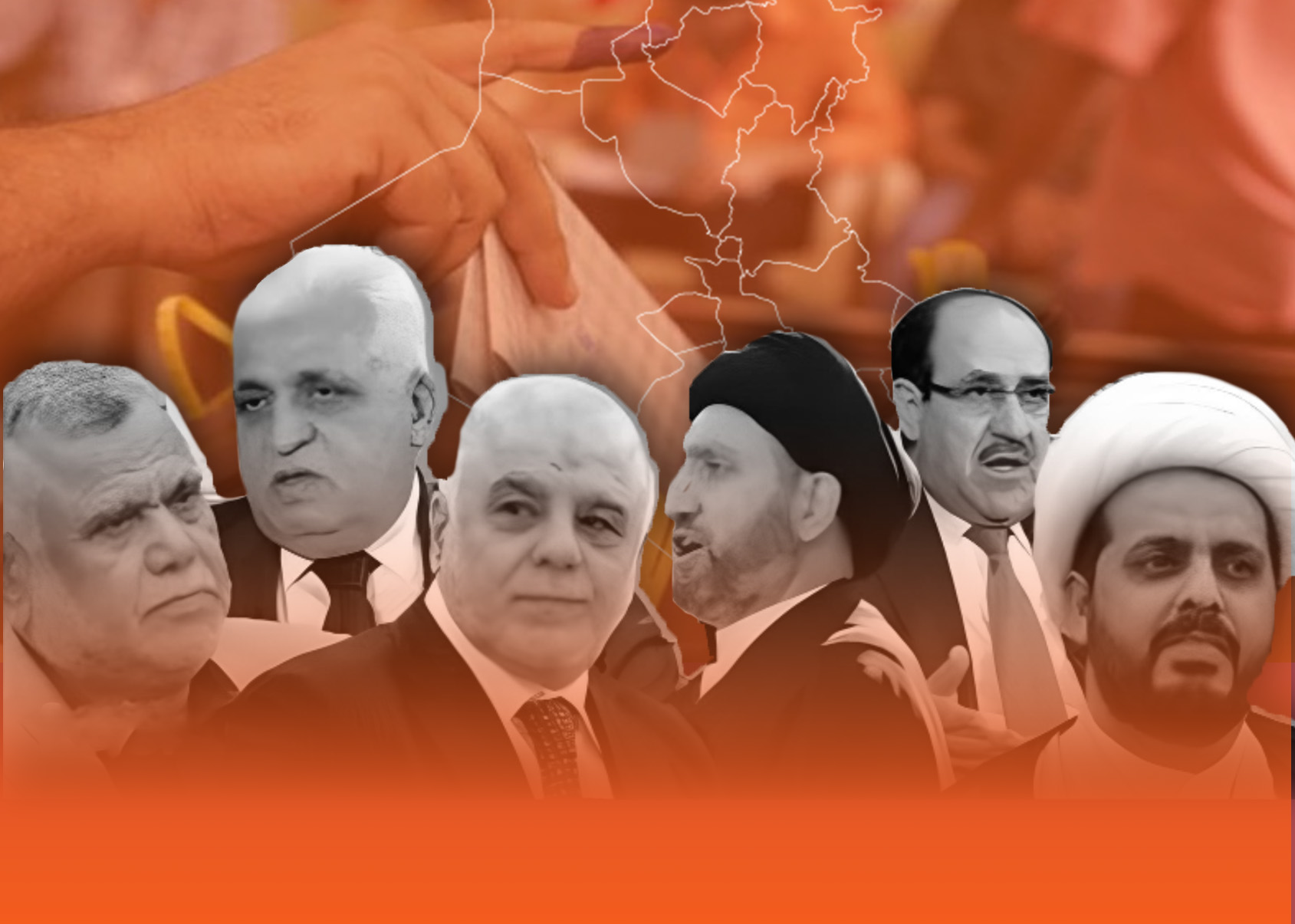A total of 38 coalitions and 36 political parties, fielding a remarkable 6,022 candidates, will contest 275 provincial seats and gearing up for a highly anticipated showdown in the forthcoming provincial council elections scheduled for December 18, 2023. Notably, the absence of an official Sadr list sets the stage for a fierce internal Shiite contest, where parties engage in intense coordination and rivalry to fill this conspicuous void.
The electoral landscape within the Shiite Coordination Framework is presently delineated into five major factions, each vying for prominence: Nouri al-Maliki's "State of Law," Qais Khazzali's "Safwa," Hadi Amiri's "Nabni," Hakim's and Abadi's National State Force, and Humam Hamudi's "Tashih." Among these, two coalitions stand out as formidable contenders, striving to ensure a significant portion of Shiite seats. Maliki's "State of Law," with its 12-party coalition, commands the largest presence, closely followed by Qais al-Khazali's front, encompassing influential Shiite armed groups such as Ansar Allah al-Awfiya, Kata'ib Jund al-Imam led by Ahmad al-Assadi, Kata'b Sayyid al-Shuhada, Kata'b Hezbollah, and Harakat Iradah led by Hanan al-Fatlawi. The stage is set for a high-stakes electoral battle within the Shiite community.
Intriguingly, a significant number of lists and coalitions, both within and outside the Shiite spectrum, have surfaced as entirely new and unfamiliar entities for this election. This strategic move is aimed at enticing voters and avoiding any lingering consequences from past mistakes. Notably, these Shiite affiliated groups which account for approximately 11 factions, have adopted a dual approach, entering some provinces with a unified list while fielding separate lists in others. Furthermore, they have outlined their intention to initiate a post-election coalition, adding an intriguing twist to the electoral dynamics.
The consolidation of Shiite lists in different ethnicity provinces, notably Kirkuk, serves a dual purpose: preventing the squandering of votes and seats, and, of greater significance, preserving the coherence of the majority discourse currently under the influence of the Mohammed Shia' Sudani's government.
In provinces marked by fragmentation, the battle intensifies for positions such as governors and local government districts. These roles represent the final connection to budget allocation and revenue distribution for provincial projects, maintaining direct engagement with the public and the voter base, making them pivotal in shaping the landscape for the upcoming parliamentary elections.
Maliki's "State of Law" list, in particular, with a sense of self-assuredness, firmly believing it can secure victory without additional Shiite support. It is apparent that their goal is to capture a substantial 40% of provincial seats, along with clinching the pivotal role of governor in five key cities. These cities include Baghdad, the nation's capital; Basra, Iraq's economic hub known for its oil resources, port, and connection to the Shatt Al-Arab waterway. Notably, a significant factor in this equation is the absence of the Sadrists from the electoral arena.
Beyond the prominent Shiite circles, the focus of Shiite lists and entities in this election has shifted towards Sunni and different ethnicity provinces. A significant number of them are actively considering expanding their reach from Shiite-dominated regions into Sunni provinces, activating their military forces in these designated areas. In the security-sensitive Diyala province, characterized by a diverse population including Shiites, Sunnis, Kurds, and Turkmen, we witness a compelling competition. Qais al-Khazzali and his Asaib movement are pitted against Hadi al-Amiri of the Badr Organization and Falih al-Fayyadh, the head of Hashd al-Shaabi, Both originate from the same province, and it's worth noting that their tribe, the Banu Amir, has a widespread presence there. It's worth noting that Diyala's political and security landscape has been under the sway of the Badr Organization.
Salahaddin, a province that includes Tikrit and Saddam Hussein's village, Al-Awja, the Shiite coordination Framework is engaged in a vigorous contest against three major Sunni lists including Al-Azm, Al-Hassm, and Al-Taqaddum. Remarkably, the Shiite Coordination Framework List stands a notable chance of securing three seats in this province. The situation in Salahaddin is a direct consequence of the post-war era, marked by the substantial involvement of Shiite armed forces, including Hashd and other groups, in the province's control.
In Nineveh, the former capital of the Islamic State of Iraq and Syria (ISIS) that has been under control for six years, a number of Shiite lists and figures are engaged in competition with their Sunni counterparts, numerous Shiite lists unite within "Al Hadba Al-Watani" a segment of Shiite Coordination Framework. Other Shiite lists in the province include Al-Safawa, led by Qais al-Khazzali, and Badr, headed by Hadi al-Amiri. Additionally, Khadamat, led by Labour Minister Ahmad al-Assadi, who is also the commander of Imam Ali's army, Madar representing Imam Ali's battalions, Al-Naj al-Watani from Fazilah party and the other lists of Islamic Supreme council are in the mix. Remarkably, the return of Maliki to the provincial race is a significant development. This comes after accusations that he was a major factor in the city's fall to ISIS in 2014, which led to a series of strikes and demonstrations against his policies in the city.
While it seems that all preparations for the upcoming 2023 local provincial elections are proceeding smoothly, there remains a significant concern that they might not take place as scheduled. This doubt stems from the Sadr movement's decision not to participate. Without the participation of this major Shiite party, which emerged victorious in the last parliamentary elections held in October 2021, there is a looming threat of low voter turnout and an imbalance of power in constituencies and provinces that traditionally belong to the absolute majority of Shiite lists.

